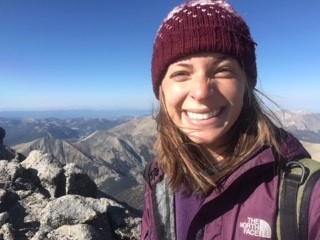
“After nursing school, are you going to become a doctor?”
The first time I was asked this, I gave the inquirer a strange look and replied with a sassy, “No…I’m going to be a nurse.”
It wasn’t until the third time I was asked the same question I realized that people genuinely didn’t understand the difference between the role of a Registered Nurse (RN) and the role of a doctor (MD).
For those who don’t work in the healthcare field, I supposed it could be confusing to delineate the difference between the two, and with the rising prevalence of nurse practitioners (NPs) and physician assistants (PAs), I have to admit that the specific role responsibilities of each healthcare profession get fuzzy even for me.
I thought it’d be a good idea to breakdown the differences between Registered Nurses, Nurse Practitioners, Physician Assistants, and doctors in an easy-to-understand way. While all professions interact with patients, there are differences that mark each one as unique.
(Please know that this is just a brief summary of each profession for the purpose of simplifying the basics for the general population, and since this is written from my perspective an RN, it could very well be skewed in its presentation. Thanks for your graciousness in advance!)
Registered Nurses
I am a registered nurse (RN). At the minimum, an RN is required to have an associate’s degree, but more and more institutions are requiring employees to have their bachelor’s of science in nursing (BSN).
Aspiring nurses must pass the NCLEX-RN (a national examination) before officially receiving their title of Registered Nurse, and RNs are not required to retest once they have passed the NCLEX-RN.
Many states require RNs to stay up-to-date on the most recent practices through continuing medical education credits (although my state of Colorado does not have any requirements for RNs – something I’m not sure if I’m in favor of…but that’s another blog topic).
The majority of RNs work in the hospital setting. Daily activities include patient monitoring, administering medications, communicating between healthcare professionals and the patient and patient’s family, delivering health education, and thorough documentation of patient status throughout a shift.
Nurse Practitioners
Nurse practitioners (NPs) are RNs who have completed additional education and training. NPs are typically masters-level prepared nurses who have passed NP certification exams in addition to the NCLEX-RN.
NPs also have to re-certify every five years to keep their license, which involves a specific amount of clinical hours and continuing education hours.
NPs have greater independence than RNs, and they are able to perform additional patient care actions such as prescribe medications and diagnose patients (both of which are outside the practice of RNs).
NPs have tailored education to focus on a specific population such as family, adult/gerontology, women’s health, neonatology, pediatrics, and psychiatric. Interestingly, the majority of NPs work in primary care settings, in contrast to the majority of RNs who work in the hospital setting.
In many states, NPs can work without a physician directly supervising them. And of course, with greater independence comes higher salary, and NPs make an average of $30,000 per year more than RNs.
Physician Assistants
Physician assistants (PAs) are yet another class of healthcare providers.
PAs and NPs are similar in some respects. For example, both can prescribe medication, assist with surgery, diagnose patients, interpret tests, and treat illnesses.
Both are considered masters-level certifications. The average annual salary of the two professions is within $600 of one another. One of the great differences between a PA and a NP is the treatment model: PAs use the medical model (focusing on diagnosis and treatment) while NPs use the nursing model (focusing on the impact of the diagnosis and treatment on the patient).
PA programs often involve around 2,000 hours of clinical patient care while NP programs often range between 500-800 clinical patient hours. Additionally, PAs are licensed to work within a physician-PA relationship, whereas NPs can be fully independent practitioners.
Physicians
Finally, we arrive at the profession of physician. The road to becoming a medical doctor (MD) is quite long compared to both NP and PA routes.
MDs have the longest post-high school education, plus residency and likely fellowship. MDs are the top of the pay scale, but they are also the providers with the most responsibility and expertise to address things like complicated/high-risk cases, deliver babies regardless of circumstance, prescribe controlled substances in every state, etc.
After reading all of this, let’s revisit the question I was asked at the end of nursing school: “Are you going to become a doctor?”
It is definitely possible for an RN to become a medical doctor (I had a classmate in nursing school who took all pre-med requisites in addition to her nursing courses, bless her heart), but it definitely is not the most fluid way to progress to a higher-level provider.
All things considered, it would make much more sense to pursue an NP degree if I desired more independence and autonomy in the healthcare field.
There are many appealing things about pursuing a nurse practitioner role, including the possibility of becoming an educator (I love teaching), providing more affordable healthcare for patients who struggle to pay medical bills (NPs cost less in general than physicians) and help with the continual shortage of providers that always exists in the medical field.
I also like the idea of bringing the holistic approach of nursing to another level. Finally, the demand for NPs is projected to rise over the next decade, which is a bonus for job security mentality (could take this out).
There are so many good things to think about! I’m definitely not ignoring all the pros that seem to fall under the pursuit of a nurse practitioner degree.
Having an advanced degree as a nurse would open a multitude of career pathways to explore, and that excites me to no end. Hopefully, it excites other nurses who read this, too!
Morgan is a new Nursing graduate living in Boulder, Colorado. She shares her insight and advice on the nursing profession.











Write a comment: